In a chilling early morning incident that has left residents reeling in horror, a man in Kiminini, Trans Nzoia County, stunned his entire village after digging up his wife’s grave—just weeks after her burial—claiming she had been haunting him in his sleep, begging to be “set free.”
41-year-old Gabriel Kiplimo shocked Mbai Farm villagers at dawn when he was caught calmly exhuming the body of his late wife, Nancy Namalwa. His neighbors watched in disbelief as he meticulously cleaned her decomposing remains, applied oil and lip balm, and whispered to her as though she were alive.
“He looked possessed—focused like he was on a holy mission,” said Mary Mukhwana, a neighbor who witnessed the eerie act. “We couldn’t believe our eyes. He acted like he was preparing her for a wedding, not a funeral.”
According to close friends, Kiplimo had been tormented by disturbing dreams since the burial. In those visions, Nancy allegedly warned him that spiritual herbs had been buried with her and that her underwear—considered taboo in Luhya customs—was binding her soul to the grave.
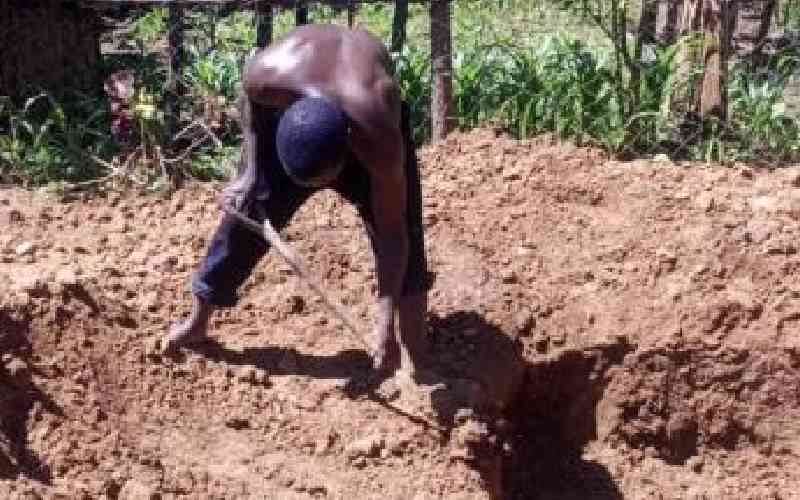
Shockingly, Kiplimo confirmed finding the exact herbs where her “spirit” told him they’d be. In a ritual that stunned even the most seasoned elders, he repositioned the body to face east—a symbolic direction often tied to spiritual rebirth.
During the reburial, he was heard sobbing and professing his love: “I won’t let you suffer in death like you did in life.”
The gruesome act has now sparked a flurry of fear and debate within the tight-knit community. While some believe Kiplimo acted out of love and desperation, others suspect something far darker. Namalwa’s family suspects foul play, saying the buried herbs point to witchcraft or hidden motives.
“This wasn’t just grief—this was spiritual warfare,” claimed a relative who spoke under anonymity.
Despite conflicting beliefs, authorities are clear: the exhumation was illegal. Kiminini Sub-County Police Commander John Onditi confirmed Kiplimo’s arrest, saying, “This is a serious offense. No one is allowed to disturb a grave without a court order. He will be charged under Section 137 of the Penal Code.”
Kiplimo is currently in custody awaiting court proceedings, while the village remains gripped by fear, sorrow, and confusion over an act that has shaken their beliefs—and their peace.

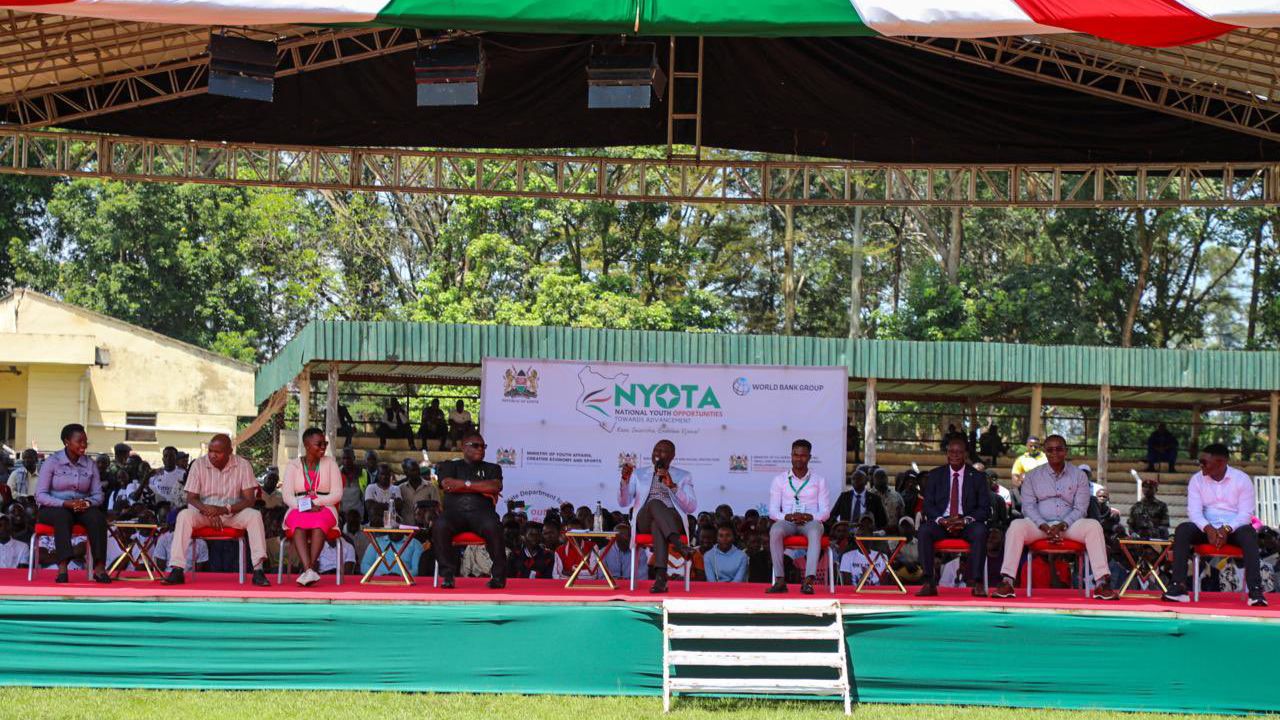
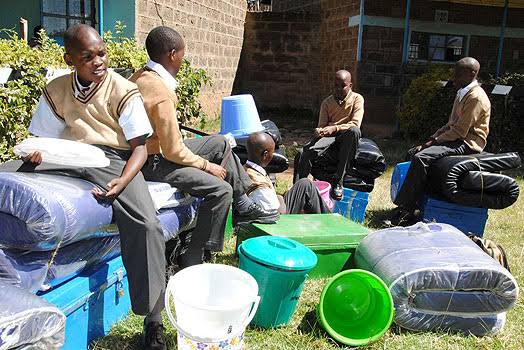
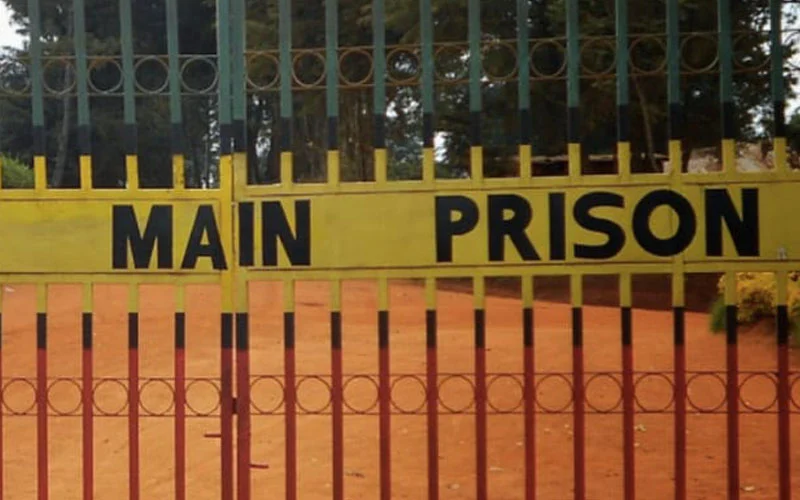

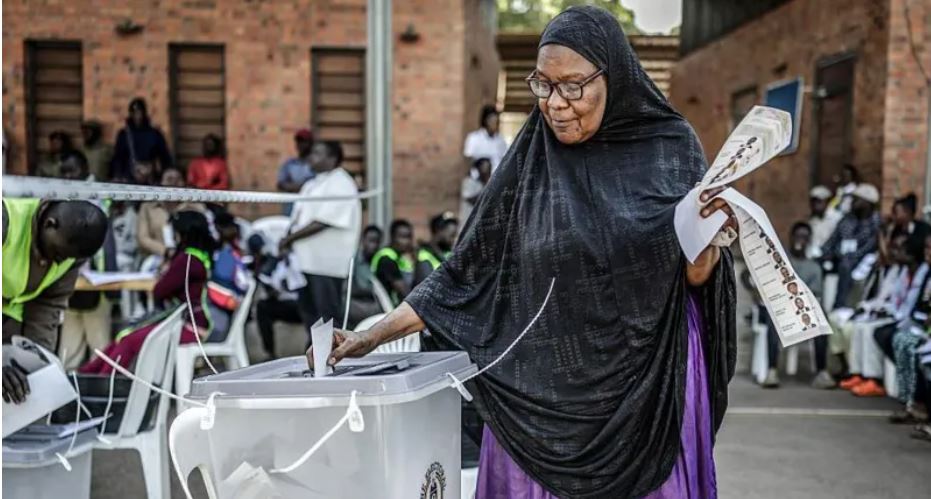




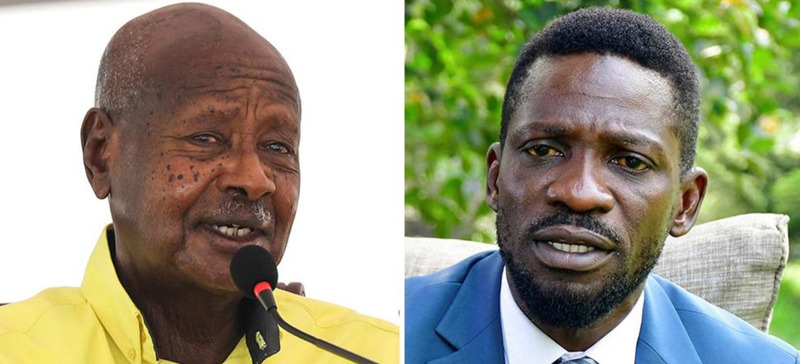
Leave a Reply